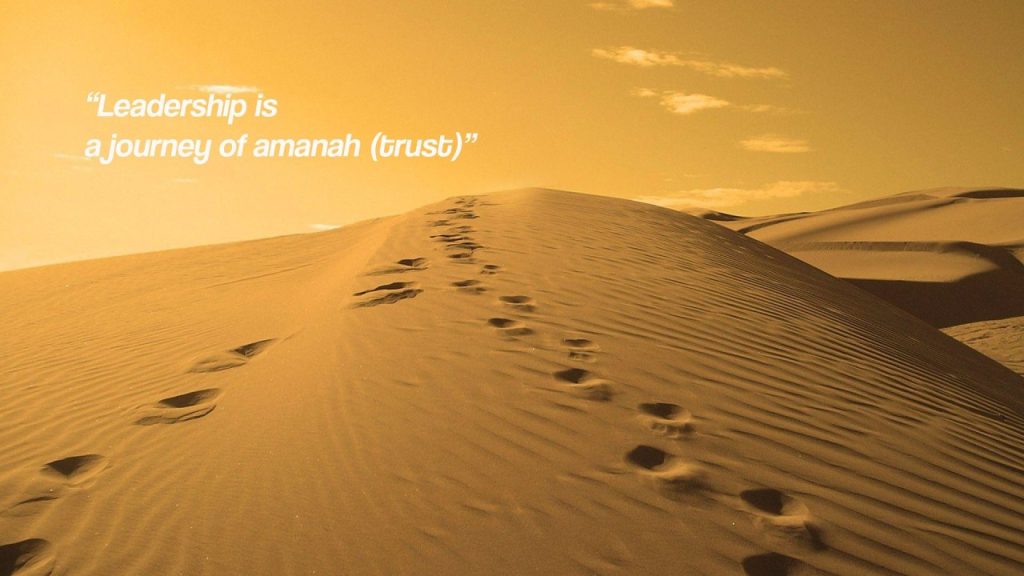How Islamic Values Shape Ethical Leadership in Today’s World

Leadership isn’t just about titles, targets, or KPIs. At its core, leadership is about people — how we treat them, guide them, and serve them. In today’s world where ethical dilemmas, scandals, and mismanagement are sadly too common, many are turning back to timeless principles to shape better, more values-based leaders. One source of rich wisdom? Islamic values.
Now before you think this article is only for Muslims — hold that thought.
The principles found in Islamic leadership values — justice, integrity, trust, accountability, compassion — are not just religious ideals. They’re universal pillars of ethical leadership that resonate across cultures, industries, and boardrooms.
Let’s explore how these timeless values can shape ethical leadership in the modern workplace — and what lessons we can apply no matter where we come from.
1. Amanah (Trust): Leadership as a Responsibility, Not a Perk
In Islam, leadership is seen as a trust — not a privilege. The Arabic term Amanah refers to trust, reliability, and fulfilling obligations with sincerity. The Prophet Muhammad (PBUH) was known as Al-Amin — “The Trustworthy” — even before his prophethood.
Leaders today can take a cue from this: Your team doesn’t work for you. You work for them. Holding a position of authority means carrying the weight of responsibility with integrity.
✔ Modern-day takeaway: Be someone your team can count on. Be clear in your promises, transparent in your decisions, and consistent in your actions. Trust isn’t built overnight — but it can be broken in seconds.
2. Adl (Justice): Fairness in Every Decision
Justice (Adl) is a central theme in Islamic teachings. In Surah An-Nisa (4:58), the Quran says:
“Indeed, Allah commands you to render trusts to whom they are due and when you judge between people to judge with justice.”
Ethical leadership today means more than just “not playing favorites.” It means giving everyone a fair shot — regardless of background, gender, or role. It means listening before judging, promoting based on merit, and standing up against injustice, even when it’s inconvenient.
✔ Modern-day takeaway: Promote fairness, not favoritism. Create inclusive spaces where everyone has a voice. Justice builds loyalty — and trust builds high-performing teams.
3. Ihsan (Excellence and Integrity): Do What’s Right, Even When No One’s Watching
Ihsan means doing your best — with sincerity, with heart, and with moral integrity. It’s the spirit of excellence not just in outcomes, but in intention.
In leadership, this means not just aiming for results but doing so ethically. It means refusing to cut corners, even if it costs more time or effort. And it means showing up as a role model — even on the tough days.
✔ Modern-day takeaway: Don’t just chase goals. Chase growth. Model ethical behavior even when nobody’s watching — because someone always is.
4. Shura (Consultation): Leadership Isn’t a Solo Act
In Surah Ash-Shura (42:38), consultation is praised as a trait of believers:
“…and those who conduct their affairs by mutual consultation…”
Shura reminds us that good leadership isn’t about having all the answers. It’s about asking the right questions, listening actively, and involving others in decision-making. Teams today thrive when leaders are inclusive, open-minded, and willing to admit they don’t know everything.
✔ Modern-day takeaway: Seek input. Ask for feedback. Encourage dialogue. Collaboration isn’t a sign of weakness — it’s a mark of modern wisdom.
5. Taqwa (Consciousness of Purpose): Lead with Values, Not Just Strategy
Taqwa is often translated as “God-consciousness,” but in a broader leadership sense, it’s about being value-driven. It means being aware of the bigger picture — the impact your decisions have on people, communities, and the future.
When leaders operate with Taqwa, they don’t just chase quarterly wins. They think long-term. They lead with purpose. They align their actions with their ethics, even when it’s not easy.
✔ Modern-day takeaway: Purpose is powerful. Lead with vision, grounded in values. People follow not just what you do, but why you do it.
What Does This Mean for Today’s Leaders?
Ethical leadership is no longer a “nice to have.” It’s a business essential. Teams want to work with leaders they trust. Clients want to work with businesses that stand for something meaningful. And future-ready leaders are those who can inspire both hearts and minds.
Islamic values — whether you’re Muslim or not — offer a strong framework to lead with purpose, integrity, and compassion.
When leaders embody these principles, they don’t just lead organizations — they shape legacies.
💼 How We Help Build Purpose-Driven Leaders
At Elite Career Centre, we specialize in transformative leadership training, team building, and soft skills development — blending proven corporate frameworks with human-centered values. Whether you’re leading a team of 5 or an organization of 500, we help you build trust, collaboration, and purpose that lasts.
📚 Want to build ethical, high-performing teams grounded in values that inspire? Let’s work together.




















